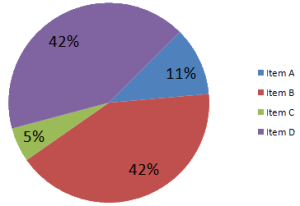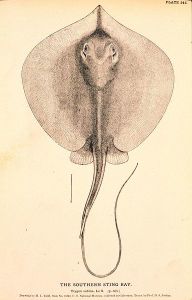54 Visuals Overview
Visuals are used to complement text in documents. Visuals are classified according to Tables or Figures.
A table is used to organize data in volumes and rows using numbers and words. Tables present a logical representation of data. Tables are usually used to show comparison data.
Figures, on the other hand, illustrate all other types of data. Figures include such visuals as pie charts, line graphs, bar graphs, layouts, photographs, drawings and photographs:
- Pie Charts show segments that compare percentages of a whole.
- Line graphs show the relationship between two or more variables.
- Horizontal Bar Graphs show comparisons of similar units.
- Vertical Bar Graphs illustrate timelines.
- Layouts show detailed space.
- Flow Charts show time sequences or hierarchal structures
- Drawings eliminate unnecessary details to more effectively show how items relate to other items.
- Photographs are exact representations of items. (Riordan, 2005)
Note that although visuals and text complement each other, either can stand alone. Both include and express the same information in different formats.
References: Riordan, D.G. (2005). Technical report writing today. Boston: Houghton Mifflin Company.
See the following examples of Tables and Figures:
Tables


Figures









